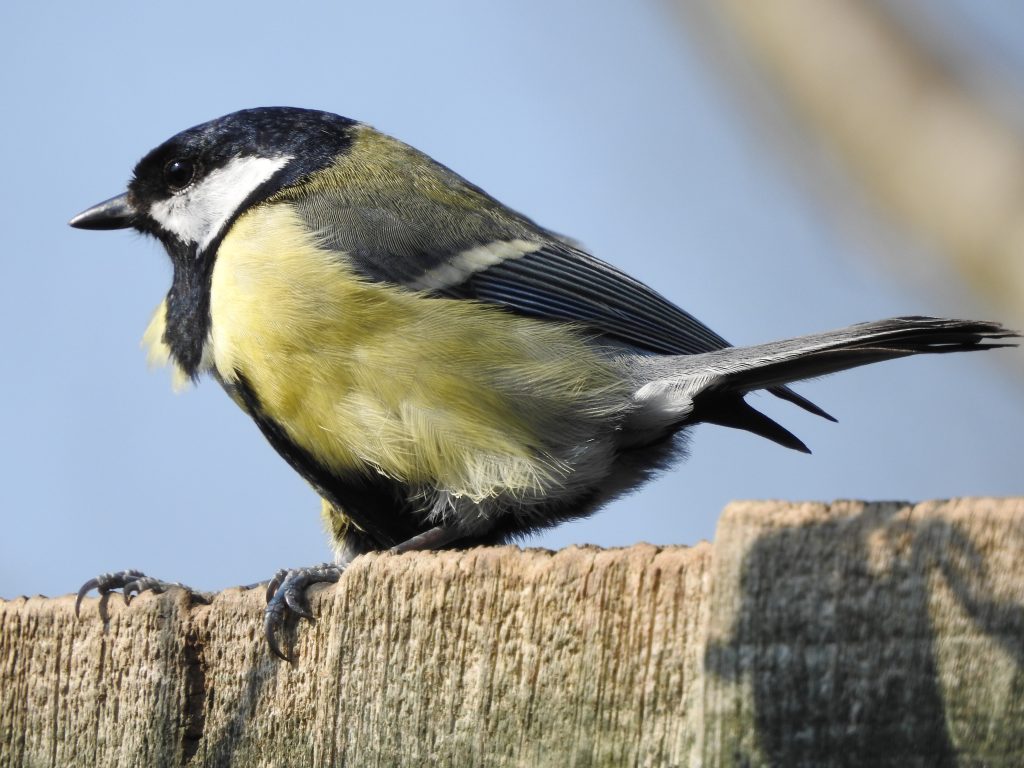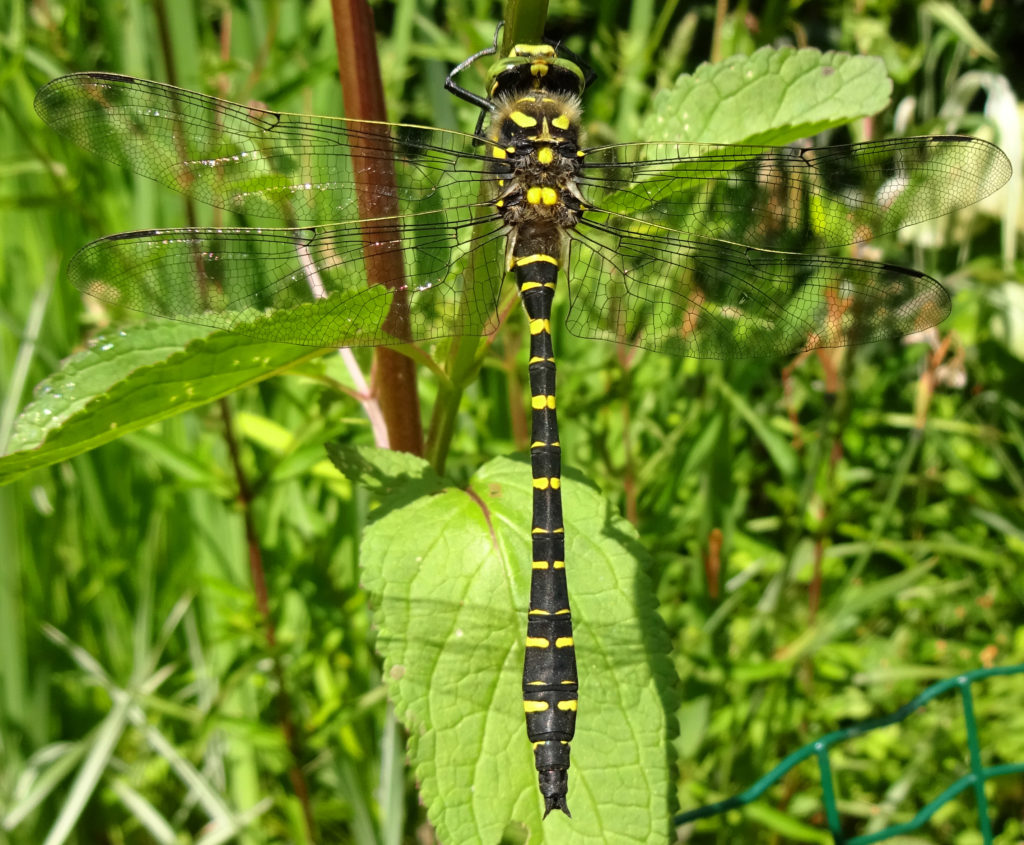
The Daily Mail reports great tits are laying their eggs up to a fortnight earlier than they did 60 years ago, according to a new study, which found it is a consequence of climate change.

The Daily Mail reports great tits are laying their eggs up to a fortnight earlier than they did 60 years ago, according to a new study, which found it is a consequence of climate change.

The BBC reports dragonflies are moving northwards across Britain and Ireland as temperatures rise. More than 40% of species have increased their distribution since 1970, while only about 10% have declined, according to a new report.
Experts from the British Dragonfly Society say it’s an indicator of the effects of climate change. There is concern over the loss of populations of insects due to factors such as pollution and habitat loss.
The Guardian reports farmers are being called upon to dedicate 1% of their land to nature and carbon sequestration in an unexpected way – by farming in straight lines.
The call to make a commitment to nature and the climate in the run-up to the crucial COP26 UN climate summit in Glasgow comes from WildEast, the farmer-led rewilding movement that is encouraging landowners large and small to create wildlife-rich places across East Anglia. Since its launch a year ago, the WildEast campaign has gathered pledges from more than 80 farmers in the region to devote 20% of their land to nature.
The Guardian reports the UK’s climate targets will cost the government less over the next 30 years than the price of battling the Covid-19 pandemic if it acts quickly, according to the UK’s fiscal watchdog.
Forecasts from the Office for Budget Responsibility (OBR) show that ending the UK’s contribution to the global climate crisis would add 21% of GDP to the national debt by 2050, or £469bn in today’s terms. But those costs could climb twice as high if the government delays action to cut emissions.
The independent spending forecasts found that taking early action to decarbonise the economy would have a smaller net impact on the UK’s finances than Covid or the 2008 financial crisis.
The Guardian reports there will be a rise in the scale of sewage discharge into rivers and waterways due to extreme weather events as a result of the climate crisis, MPs have been told.
Nature-based solutions must be a top priority for the government and the water regulator, Ofwat, when it comes to water companies’ investment over the coming decades, MPs heard. By 2050, the English sewerage system would face a 55% increase in water flowing through the network as a result of increased urbanisation and the removal of natural surfaces, which help water drain away.
The Guardian reports the trial, involving seven farms in Devon and scientists from Rothamsted Research and the Organic Research Centre, is the brainchild of Luke Dale-Harris of the charity Farming and Wildlife Advisory Group. It is being co-funded by the Woodland Trust and Innovative Farmers, a Soil Association programme helping farmers participate in agricultural research.
Lowland Britain’s prevailing livestock tradition of fields stocked with a high number of animals grazing near-monocultures of grass only works in the landscape and economy of the past 50 years that provided predictable weather and artificial fertilisers, argues Dale-Harris.
The climate crisis, and a series of recent spring and summer droughts – including this year – have driven farmers to look for alternatives. Plenty of Devon farmers were keen to join the trial. The climate emergency, he says, is a catalyst for change that “involves working more closely with natural processes, which can only be a good thing”.
The Times reports Scotland’s moth population has been badly damaged by climate change, experts have said. The latest research shows that moth abundance has almost halved, falling by 46 per cent between 1990 and 2018 and still dropping. Yet the study showed moth occupancy — the distribution of the insects across Scotland — has risen by 16 cent between 1990 and 2016.
Climate change is likely to be an important factor behind the trends, driving some species north, with corresponding surges in occupancy. At the same time, warmer, wetter winters have been shown to affect some moths badly while others suffer from detrimental land management and habitat changes.
The Guardian reports regenerating native woodland, restoring grassland and rewetting peatland must be priorities when tackling the “two defining crises of our age”, according to the first complete assessment of how UK nature-based solutions can combat the climate and biodiversity crises.
More than 100 ecologists examined how all kinds of landscapes – from urban to agricultural to coastal – could be enhanced to maximise carbon retention, biodiversity and human wellbeing.
The Independent reports researchers for Natural England carried out a comprehensive survey of the role different types of natural habits in Britain play in capturing carbon from the atmosphere, looking at forests, grasslands, heathlands, salt marshes and seagrass meadows and how much they store in their soils, sediment and vegetation.
They found that undisturbed woodlands and peat bogs had the highest rates of carbon sequestration, with a hectare of ancient woodland capable of storing the equivalent amount of carbon dioxide each year that would be emitted from 13 plane journeys between London and Rome. A 10-metre deep fenland peat bog can store eight times as much carbon as the equivalent area of tropical rainforest.
The Guardian reports one of the UK’s most eminent environmental scientists has called the government’s failure to block a new coalmine in Cumbria “absolutely ridiculous”. Prof Sir Robert Watson said the UK’s commitment to net zero emissions by 2050 to tackle the climate crisis was “wonderful”, but that there had to be a focus on immediate actions.
The UK is hosting a UN climate summit and Boris Johnson has pledged to lead a green industrial revolution.